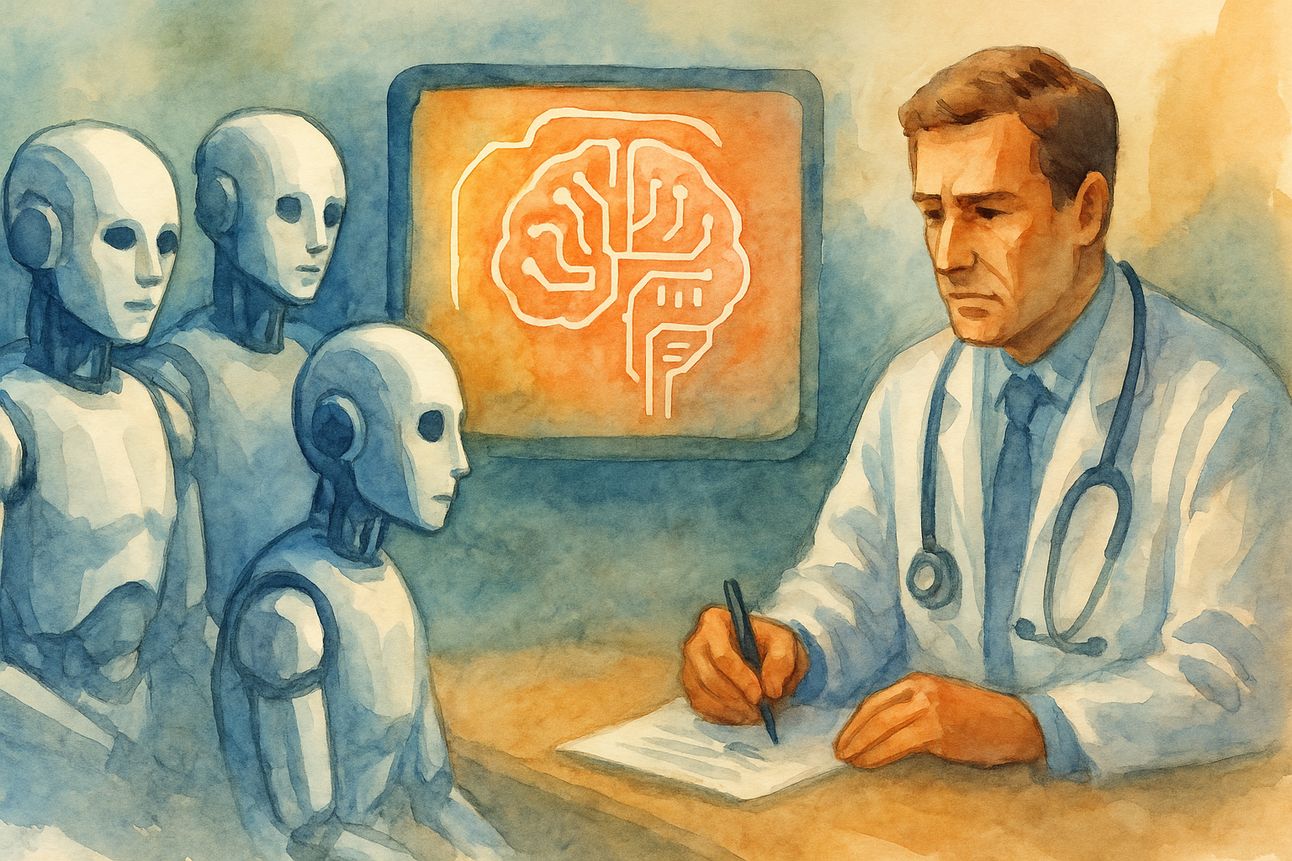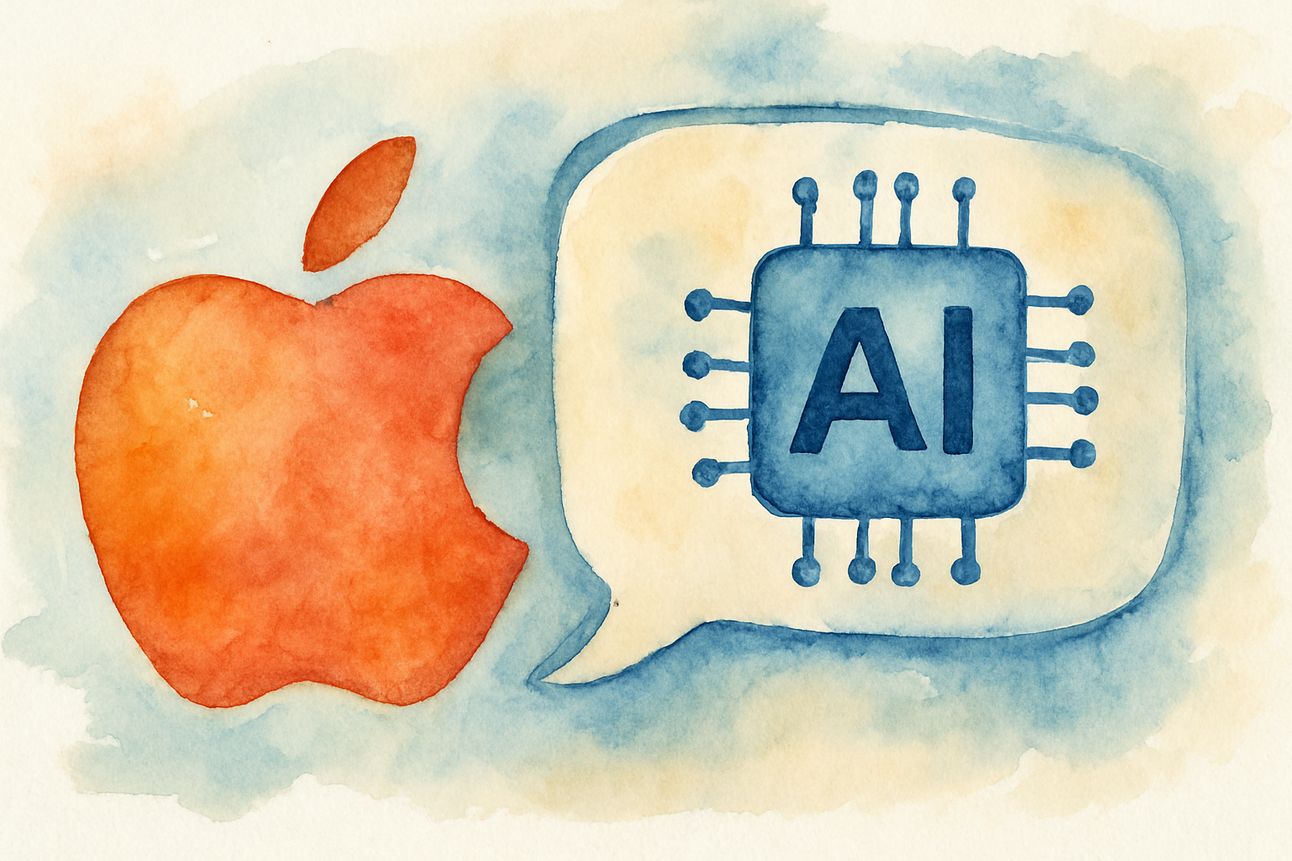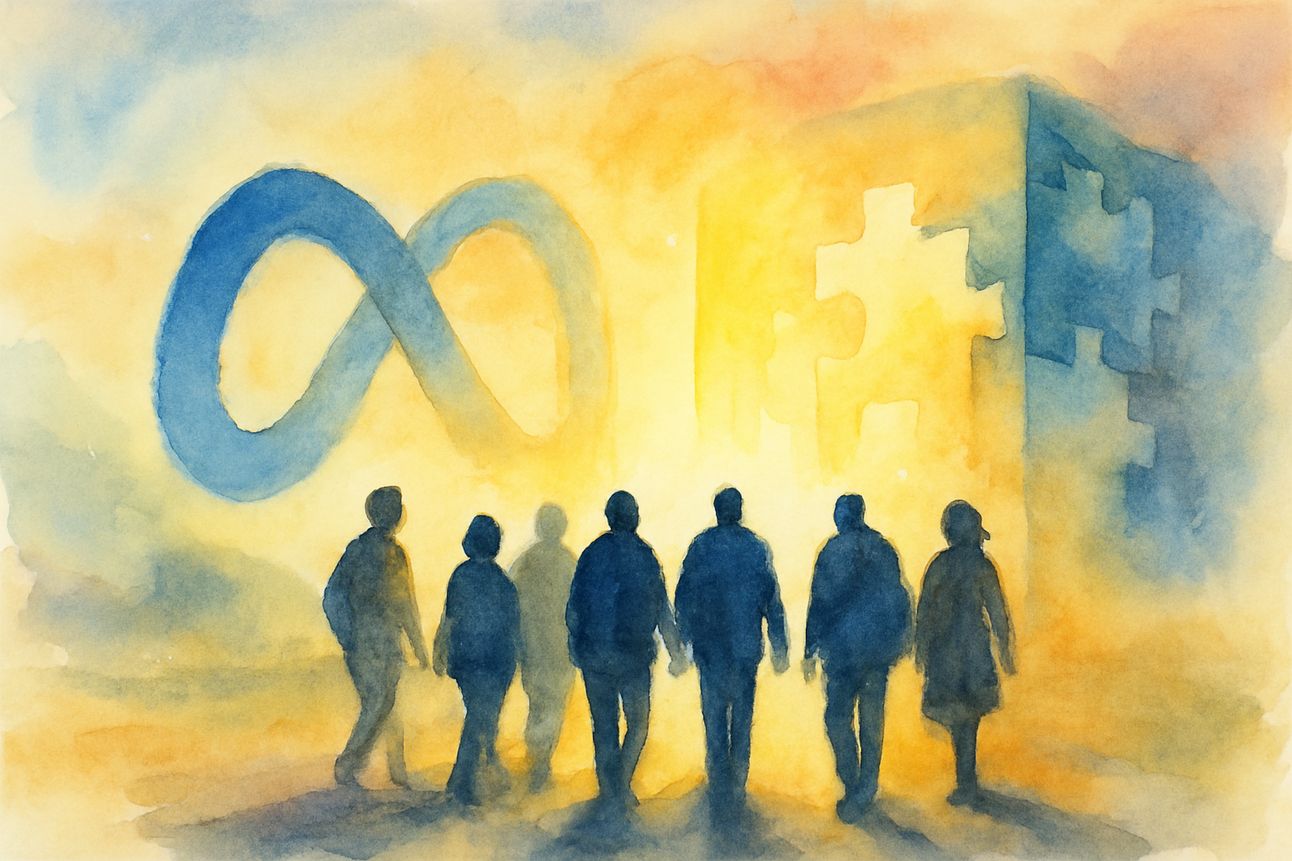- The Recap AI
- Posts
- Microsoft's new AI is beating physicians
Microsoft's new AI is beating physicians
PLUS: Apple's major Siri reversal, Meta assembles its AI dream team, and a Hollywood studio's AI debut
Good morning, AI enthusiast.
Microsoft has unveiled an AI system that demonstrates significantly higher accuracy than human physicians when diagnosing complex medical cases. The system achieves its impressive results by acting as an orchestrator, simulating a panel of expert AIs to debate each case.
This new multi-agent approach queries models from across the industry, achieving an 85% accuracy rate in complex diagnostic tests. With AI now outperforming experts in such a critical field, how will this technology reshape the future of medicine and the role of the physician?
In today’s AI recap:
Microsoft’s path to medical superintelligence
Apple’s major Siri shake-up
Meta assembles an AI ‘dream team’
A Hollywood studio’s AI-generated debut
Microsoft's Path to Medical Superintelligence

The Recap: Microsoft has unveiled an AI system that it claims can diagnose complex medical cases with four times the accuracy of human physicians. The company detailed the research, which it calls a "path to medical superintelligence," in a new blog post.
Unpacked:
In tests using over 300 case studies, the system achieved an 85% accuracy rate, more than four times higher than the 20% rate of unaided human physicians.
The new approach uses a diagnostic orchestrator that queries multiple top AI models—including those from OpenAI, Google, and Meta—to simulate a panel of experts debating a case.
Microsoft's benchmark sourced its challenges from the New England Journal of Medicine to test sequential, step-by-step diagnostic reasoning rather than simple memorization.
Bottom line: This multi-agent approach creates a more robust and realistic benchmark for evaluating AI in medicine. It signals a move toward AI systems that augment expert decision-making in complex fields, improving both accuracy and efficiency.
Apple's Siri Shake-Up

The Recap: Apple is considering a major partnership with either OpenAI or Anthropic to power the next generation of Siri. This signals a significant strategic pivot after the company's internal efforts to upgrade the voice assistant stalled.
Unpacked:
The potential partnership follows Apple's admission that its homegrown AI Siri upgrade, originally planned for 2025, is delayed to 2026 or later due to technical hurdles and quality concerns.
To find the best fit, Apple has reportedly asked both OpenAI and Anthropic to train versions of their large language models to run on its private cloud infrastructure for testing.
This exploration comes after an executive shake-up aimed at getting Apple's AI efforts back on track, highlighting the immense pressure to compete with rivals like Google and Samsung.
Bottom line: This move could finally give users the powerful, context-aware Siri they have been waiting for by leveraging proven, best-in-class AI models. It's a pragmatic admission from Apple that catching up in the AI race requires looking beyond its own walls.
Where AI Experts Share Their Best Work
Join our Free AI Automation Community
Join our FREE community AI Automation Mastery — where entrepreneurs, AI builders, and AI agency owners share templates, solve problems together, and learn from each other's wins (and mistakes).
What makes our community different:
Real peer support from people building actual AI businesses
Complete access to download our automation library of battle-tested n8n templates
Collaborate and problem-solve with AI experts when you get stuck
Dive into our course materials, collaborate with experienced builders, and turn automation challenges into shared wins. Join here (completely free).
Meta Assembles an AI 'Dream Team'

The Recap: Mark Zuckerberg has officially launched Meta Superintelligence Labs (MSL), a new group dedicated to accelerating the company's race toward superintelligence. The effort will be led by former Scale AI CEO Alexandr Wang and former GitHub CEO Nat Friedman.
Unpacked:
Meta is poaching top-tier researchers from direct rivals, including OpenAI, Google DeepMind, and Anthropic, in an aggressive talent acquisition blitz.
The all-star roster includes key minds behind major projects like Google's Gemini, DeepMind's Gopher, and several co-creators of OpenAI's GPT-4o models.
To attract this talent, Meta is reportedly offering compensation packages well into the eight-figure range, escalating the already fierce AI talent war.
Bottom line: This move concentrates a massive amount of the industry's top AI talent under a single corporate roof, significantly intensifying the race to build next-generation models. Meta is signaling a major strategy shift, aiming to compete at the absolute frontier of AI development.
Hollywood Meets AI Content

The Recap: The Korean entertainment powerhouse behind Parasite, CJ ENM, has unveiled its comprehensive AI strategy, debuting a 100% AI-generated animation series and a suite of tools to transform its content pipeline.
Unpacked:
The studio's first fully AI project, an animated series called "Cat Biggie," was produced by a team of just six specialists in five months, a significant reduction from typical animation timelines.
CJ ENM is building proprietary tools for the job, including 'Cinematic AI' to ensure visual consistency across video, sound, and 3D characters, and 'AI Script' to discover new IP by analyzing market trends.
Building on the animation's debut, the company plans to expand into producing AI films and dramas within the year, aiming to establish itself as a global AI studio.
Bottom line: This move signals a shift from one-off AI experiments to building a scalable, end-to-end production pipeline. Major studios are now seriously investing in AI to not only increase efficiency but also to discover and create the next wave of content.
The Shortlist
Baidu open-sourced its ERNIE 4.5 series, a family of 10 commercially-licensed multimodal models with variants up to 424B total parameters.
Manifold launched as a new open-source toolkit designed to simplify the deployment, management, and security of any AI model, aiming to provide a Docker-like experience for AI infrastructure.
GitHub open-sourced its Copilot Chat client for Visual Studio Code under the MIT license, allowing developers to explore the code, see what context is sent to LLMs, and contribute to the project.
Chai Discovery introduced Chai-2, a new model for molecular design that enables zero-shot antibody discovery, claiming a more than 100x improvement over previous state-of-the-art methods.
Upwork released new data showing that freelancers offering AI-related skills earn over 40% more per hour than their non-AI counterparts, with overall freelance earnings from AI jobs up 25% year-over-year.
What did you think of today's email?Before you go we’d love to know what you thought of today's newsletter. We read every single message to help improve The Recap experience. |
Signing off,
David, Lucas, Mitchell — The Recap editorial team
